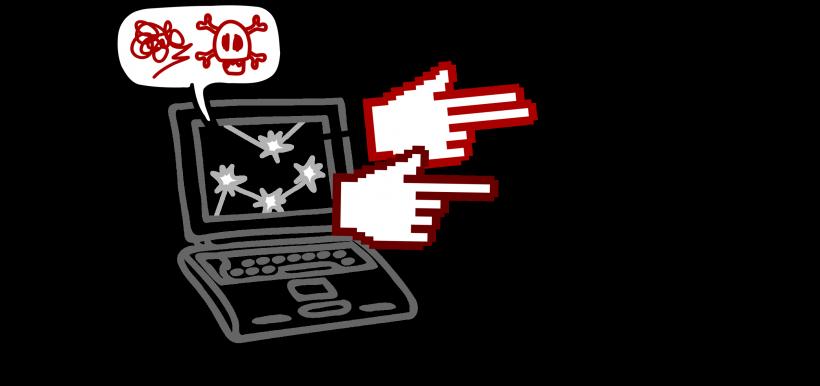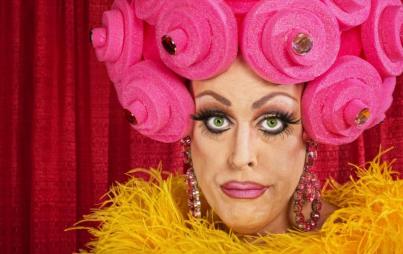
Social media often seems designed to turn everyone into a bully. Twitter especially is organized so that each person acquires a clique, be it small or large—everybody has their own fanbase—which will rush to applaud virtual friends and berate one's enemies. It's like high school, but with pseudonyms and no adults to intervene. Lord of the Flies can feel like a vacation spot for conflict-management consultants in comparison.
There have been various solutions proposed for making Twitter, in particular, less godawful. One technological tool is the Blockbot, which allows people to group block a curated list of those the (lefty) moderators think are the worst trolls on Twitter. For his part, Freddie deBoer has argued that one of the main problems on left-ist Twitter in particular is people he calls "accelerants."
Accelerants, deBoer says, are people who pile on and amp up any and all inter-left outrage. DeBoer argues that these people are mostly white guys who have relatively little stake in left politics:
"They have the luxury of engaging with maximum anger and ugliness, and then withdrawing when they run out of steam. For them, and for me, withdrawal is possible, and so the urge to engage in a vicious way comes without as many consequences. No such release valve really exists for the activists of color in whose name the accelerants trash others. This is what we mean when we talk about privilege."
DeBoer's analysis is useful in several respects—though not always in the way he intended. In particular, I think deBoer demonstrates how simple it is to jump from actions to identities online. Maybe this is because actions and identities online are all just words; when everybody is just what they type onscreen, it becomes easy to think that the words and the person are instantly, absolutely, one and the same. Or maybe it's just because people automatically lump each other into invidious categories, and the internet allows you to encounter more people faster, and so to hate quicker and more effectively.
But whatever the reason, the fact is—online identities are formed, rapidly. Around fandoms, around causes, around hobbies, around message boards, around hashtags. DeBoer shows how this is done. Based on a half-completed study and his own vague impressions, he takes a certain kind of behavior—feeding online nastiness—and creates a whole demographic. The bad guys are privileged white guys, with little stake in the activism they dip their toes in. DeBoer even creates a psychology; the accelerants, he says, think they're doing good: "many of them have deluded themselves into think that, by turning every conflict into a mudfight, they somehow are speaking truth to power."
DeBoer says he wants to try to be kinder towards these people, which is laudable. But I think he fails to realize just how aggressive, and volatile, the process of identity-creation is. Focusing on identities rather than actions essentially encourages you, in any interaction, to extrapolate from flawed actions to flawed people. Worse, it leads you to look for and censure certain kinds of people, rather than certain actions. If you're looking about for culpable accelerants, it's a lot easier to look for the people with privilege than it is to actually try to read backwards through barrel-fulls of tweets. You end up assuming that certain kinds of people are entering the discussion in bad faith—and that's a recipe for accelerating accusations and counter-accusations, not for dialing them down.
This isn't to say that race and gender and power dynamics don't matter online. They matter enormously, and people need to take them into account, in ways both big and small. But, at least from my own experience, I don't know that it's true that people with more privilege are necessarily more likely to bully, or to be jerks, or to be intemperate or unreasonable online. People with privilege can often abuse more effectively; it's easier to hurt other people when you have more power.
But cruelty, anger, and violence are a potential for everyone. Defining certain people as abusers, or accelerants, can actually make it harder to prevent bullying, because it makes it hard to see, or confront, bad actions when they don't originate with the people who you've already defined as bad actors. And, further, once you've defined someone as a bad actor, they tend to perform accordingly, out of spite, or anger, or just because, if you see "bad actor" or "gamergater" as who you are, it can become difficult to figure out how to behave decently without losing your self.
DeBoer concludes his piece by urging those with privilege and power to think twice before throwing gasoline on an online fire. That's good advice…but I think it would be better if it were generalized. Rather than some people worrying about being an accelerant, it seems like it might be helpful if everyone online, whatever their identity, tried to avoid accelerating. And in particular, folks should be aware of the potential accelerating effect of turning wrong actions into wrong actors—of congealing cruel words or actions into cruel people.
Once you've constructed that accelerant, he may be hard to dismantle.






